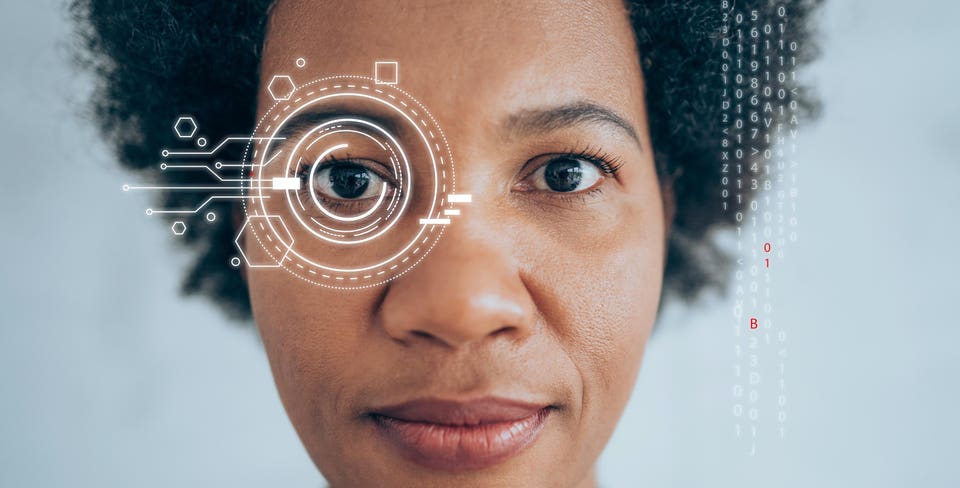Forbes Innovation Consumer Tech Dr GPT: 84% Say ChatGPT Got Their Diagnosis Right John Koetsier Senior Contributor Opinions expressed by Forbes Contributors are their own. Journalist, analyst, author, and speaker. Following Click to save this article.
You’ll be asked to sign into your Forbes account. Got it Jan 2, 2024, 07:32pm EST Share to Facebook Share to Twitter Share to Linkedin Most Americans seem willing to trust AI with a bigger part of their medical needs. getty Doctors and healthcare officials can debate the value of AI in health as much as they’d like.
People are already voting with their fingers, and using ChatGPT for health care insights, diagnoses, and help with understanding what their doctors tell them. According to a new study of 2,000 American adults, 52% of us have given our symptoms to an AI system like ChatGPT. Of those, the vast majority say that ChatGPT got it right.
“Over half of the respondents (52%) stated they have given a list of their symptoms to a large language model (LLM) like ChatGPT, looking for a diagnosis,” says the company that ran the survey , UserTesting. “Of them, 81% have been given a diagnosis from the LLM, and when asked for their diagnosis after consulting a doctor, 84% said the diagnosis was accurate. ” Americans appear especially likely to trust AI.
While almost half of English people and a third of Australians say they don’t trust AI for any health-related tasks, only 6% of Americans agree. While some of what we’d trust AI to do is simple tasks like scheduling appointments or coordinating with pharmacies, 53% of us “would trust AI to recommend treatment plans. ” I’ve personally used AI to decode medical jargon and understand a medical diagnosis after getting a full-body MRI.
And I recently used ChatGPT to confirm that what I was feeling over the holidays was likely a flu. It shouldn’t be a shock that Americans are looking for healthcare solutions outside of traditional doctor-patient and hospital arrangements. 26 million don’t have health insurance , and among those that do, expensive co-pays or difficulty getting an appointment make alternatives attractive.
Plus, many rural and inner city areas in the United State may entirely lack local and convenient healthcare options regardless of your insurance status. MORE FOR YOU We Need To Talk About Baldur’s Gate 3’s Steam Playercount Numbers BlackRock ETF Leak Triggers Bitcoin Price Surge Past $45,000 After Goldman Sachs Issues Huge 2024 Ethereum, XRP, Solana And Crypto Prediction In Krynky, Russian Troops Perform A ‘Zhukov Maneuver. ’ That’s Code For ‘Suicide Attack.
’ “The growing prevalence of healthcare deserts or even just ordinary lack of access in America means that AI will be incorporated into the healthcare journey to provide care at the scale that we need as the country ages,” says Lija Hogan, who leads research strategy at UserTesting. What would we trust AI with? Recommend treatment plans: 53% Monitoring sleeping patterns: 53% Scheduling doctors appointments: 52% Monitoring heart health: 51% Diagnosing chronic illnesses like heart disease: 48% Coordinating with pharmacies to fill prescriptions: 47% Monitoring blood pressure: 42% Diagnosing Covid: 42% Providing fertility information: 40% Diagnosing colds and flus: 40% Of course, many of us have wearable devices and tools that do parts of this already: Apple Watches, Fitbits, or others. And 78% say that we believe AI and tech companies will protect the health data we share with them.
However, when we’re really sick, we probably need a doctor and specific medical tests for diseases that can only be detected with blood tests or other exams that consumer-grade wearable medical technology. Consumer tech may be coming for that too—see the COR ‘FitBit for your blood’ that I covered in March of 2022—but there are some things only doctors can do. Few of us have a personal MRI machine, or X-ray.
The best option may be doctors and AI working together: an ever-present frontline of health information delivered seamlessly via wearable tech and smart AI, and a secondary layer of defense provided by experts taking advantage of all the data and insights that smart systems can provide. “Doctors and patients need to figure out together how AI can play the best role in healthcare journey,” says Hogan. “This means that we have to figure out the right guardrails to ensure people are getting high-quality advice in the right contexts and how to connect patients to providers.
” That connected, seamless system of medical professionals and healthcare-trained AIs, however, has yet to be delivered. Follow me on Twitter or LinkedIn . Check out my website or some of my other work here .
John Koetsier Editorial Standards Print Reprints & Permissions.
From: forbescrypto
URL: https://www.forbes.com/sites/johnkoetsier/2024/01/02/dr-gpt-84-say-chatgpt-got-their-diagnosis-right/



